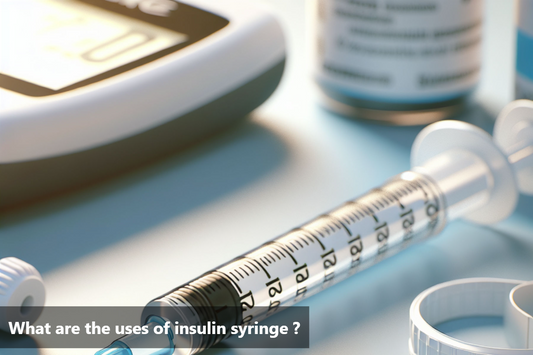Diabetes is a chronic health condition that may significantly affect one’s life if not properly managed. Early diagnosis and intervention are key to mitigating the risks associated with the disease, but how can you predict the onset of this condition early?
In this article, we’ll explore the various methods to help you detect diabetes at an early stage. As a result, you can ensure your health is in the best possible shape.
Let’s talk about the risk factors
The first step in predicting diabetes is to be aware of the risk factors. People who are overweight, have a family history of the disease or have a sedentary lifestyle, are all at a higher risk. Additionally, individuals with hypertension, high cholesterol, or a history of gestational diabetes are also more likely to develop the disease.
How to predict?
1. Monitor your blood sugar levels
Keeping track of your blood sugar levels helps you identify patterns, so you can make necessary changes to your lifestyle. This can be done with the help of a fasting glucose test, which can measure your glucose level after you haven't consumed any food the previous night. If your blood sugar levels are higher than they should be, it is a good indication that diabetes may be on the horizon. Your doctor will anyway tell you to watch your glucose levels, in case you have been diagnosed with pre-diabetes, or if there are any symptoms.
2. Track your weight
Maintaining a healthy weight helps reduce your risk of developing diabetes. Track your weight and body mass index (BMI) to ensure you are at a healthy weight. A sudden, unexplained weight gain may indicate the onset of diabetes. It is also essential to pay attention to any changes in thirst or frequent urination, as these can be signs of the condition.
3. Schedule regular checkups
Scheduling regular checkups with your doctor is important to predict diabetes early. Your doctor can help you track your blood sugar levels and they’ll understand symptoms better.
How to reduce the risk?
1. Eat a nutritious diet
A healthy diet is important to reduce your risk of diabetes. Eating a balanced diet with plenty of fruits, vegetables, and lean proteins can help you keep your blood sugar levels in check. Additionally, limiting your intake of processed foods, sugary drinks, and unhealthy fats can help you maintain a healthy weight. If you are in the pre-diabetes stage, then it is best to have a diabetic diet.
2. Exercise regularly
Exercise is important for managing diabetes and maintaining a healthy weight. Aim for at least 30 minutes of physical activity each day. This can include walking, jogging, swimming, biking, and other activities.
3. Manage stress
Stress may negatively impact your blood sugar levels, so it's vital to practice stress-reduction techniques. This can include yoga, meditation, and deep breathing.
The bottom line
By understanding the risk factors and monitoring changes in your body, it is possible to predict diabetes at an early stage. Early diagnosis and treatment can help to prevent or delay serious complications. If you suspect that you may be at risk, be sure to speak to your doctor as soon as possible.
You’ve already understood that a diabetic diet is a big part of the treatment. But keeping in mind which food choice is right for you might not be practical for everyone. So, here is an easy and tasty solution. Opt for our diabetes meal subscription for authentic Indian dishes. Furthermore, we also have a range of diabetes-friendly food options, too.
References:
https://www.cdc.gov/healthyweight/assessing/bmi/index.html
https://www.sciencedirect.com/science/article/abs/pii/S0168822710001944
This Blog post is an initiative by DiabeSmart, to provide accurate and Nutritionist / Doctor approved information related to Diabetes. DiabeSmart is India's first Food brand designed specifically for Diabetics, that has been clinically tested on Diabetics and Pre-Diabetics to deliver 55% - 70% lower Sugar spikes. DiabeSmart is part of Lo! Foods - India's leading brand for Everyday Functional Health foods.













